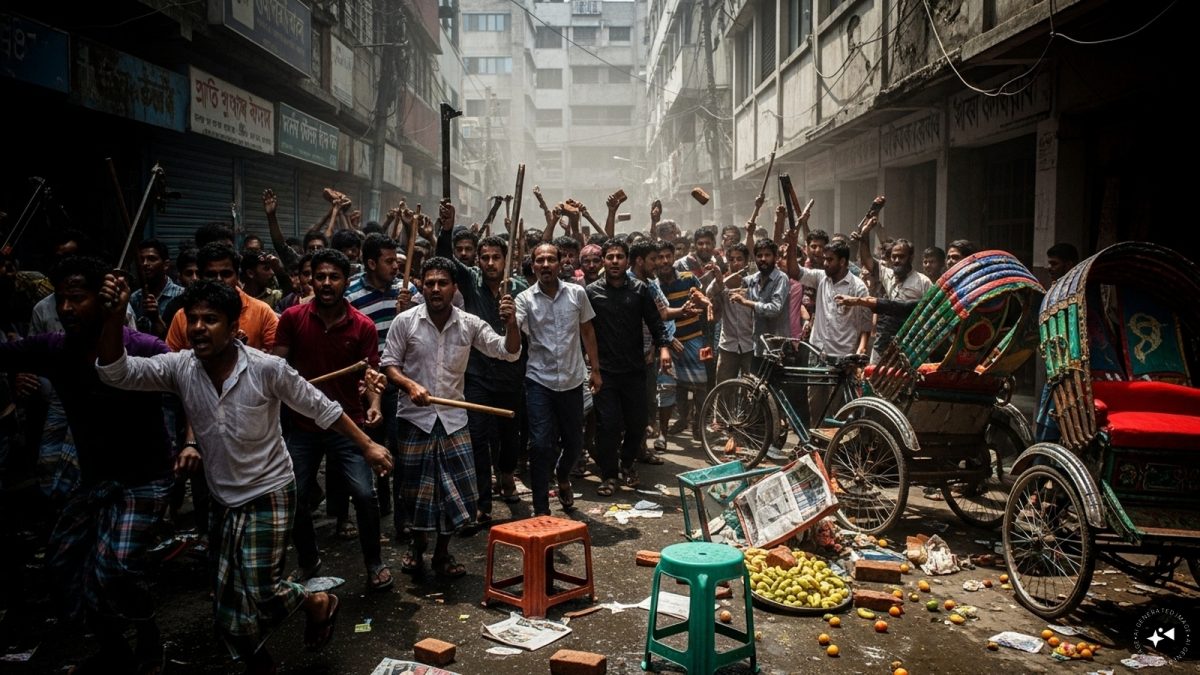Former premier Khaleda Zia’s Bangladesh Nationalist Party (BNP) on Saturday warned that mob violence has become one of the country’s biggest problems along with the emergence of right wing forces, especially in the aftermath of last year’s political change.
Bangladesh Nationalist Party (BNP) has cautioned that mob attacks are emerging as one of the country’s most pressing problems, alongside the growing influence of right-wing groups in the wake of last year’s political upheaval.
Speaking to The Business Standard, BNP secretary general Mirza Fakhrul Islam Alamgir said unchecked mob violence would be “extremely harmful” for Bangladesh.
He pointed to groups and individuals who, according to him, openly declare that dissent against Shariah will not be tolerated and that women must be “controlled.”
Alamgir argued that such trends run counter to the BNP’s vision of building an inclusive, liberal, and democratic society.
He said these forces had existed earlier, ”but after August 5 (2024), they have become stronger, their activities and propaganda more visible”.
The Muhammad Yunus-led interim government, installed following a massive student-led campaign, has disbanded the activities of deposed prime minister Sheikh Hasina’s Awami League until its leaders, including the ex-premier, were tried, particularly on charges of committing crimes against humanity.
Hasina, who was ousted in a street movement on August 5, 2024, is being tried in absentia at the Bangladesh International Crimes Tribunal on several charges.
Last month, the interim government warned media outlets against broadcasting or publicising statements by Hasina, saying that instant legal action will be taken against those violating the order.
The BNP has emerged as the single largest party in Awami League’s absence.
The BNP is regarded as a centre-right political outfit, with its self-exiled acting chairman and Zia’s son Tarique Rahman virtually running the party activities from London while his octogenarian mother stays in Dhaka.
Alamgir in recent days expressed his fear that a “conspiracy” was underway to replace liberal politics with extremism.
His comments came a day after Bangladesh witnessed two chilling incidents of violence when an Islamist mob burnt the corpse of a spiritual figure desecrating his grave, while another group set on fire the central office of Jatiya Party, an ally of Hasina’s Awami League.
Police and media reports said a group of people claiming to be Muslim “monotheistic mass” burnt the body of Nura Pagla, known as a Sufi dervish, nearly two weeks after his death, desecrating his grave, exhuming the corpse and vandalising his shrine in western Rajbari district after Friday prayers.
A subsequent clash between Pagla’s followers and the Islamists left one person dead and over 100 wounded when vehicles of police and that of the local administrative chief were set on fire.
According to a nationwide survey carried out last month by the BRAC Institute of Governance and Development (BIGD) and Voice for Reform, around 80 per cent Bangladeshis were concerned about increasing mob violence, while significant portions also worried about women’s safety.
According to the Human Rights Support Society, at least 25 people were killed in 38 separate mob lynching incidents across the country in August alone.
With inputs from agencies
End of Article

)

